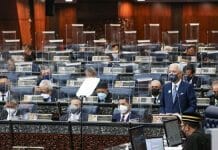Prime Minister Datuk Seri Anwar Ibrahim recently mentioned that the youth unemployment rate was at 10% despite the low national unemployment figures, and that the new administration will make some adjustments to the budget. The focus of this revised budget should concentrate especially on how to boost youth employment through SMEs and the digital economy.
Because of their entrepreneurial achievements, young entrepreneurs are recognised as the driving force behind the current state of the global economy. That said, the Malaysian government should prioritise developing more successful young entrepreneurs in the SME sector to support rural economic growth and help these individuals improve their quality of life by creating new job opportunities.
Through the SMEs, the level of progress made by a community and a nation can be determined. Thus, increasing and improving infrastructure among SMEs should be prioritised. As such, the government should reconsider its current budget for 2023, focusing on SMEs and the adoption of new digital technology as it only looks into financial assistance and tax reductions for SMEs at present. Based on the survey conducted in July 2022 by EY Malaysia, there are only 10% of SMEs which are fully digitalised and Malaysian companies use digital technology less than the average business worldwide.
Owners of small businesses usually lack the skills and knowledge necessary to expand their businesses digitally as they use technology much less frequently due to its ever-evolving nature. Additionally, the majority of them come from rural areas where they have less exposure to today’s increasingly advanced technology, and they face a lack of knowledge on available financing options. As a conclusion, the most significant obstacles to SME digitalisation are lack of funding, employee skill gaps, and inadequate technology infrastructure, which are key in building a conducive ICT ecosystem for SMEs.
The government’s current budget for 2023 can be improved in several ways to support SMEs in their digital transformation. These include increasing their awareness of business and digital economy, increasing their access to financial and technological-based programmes like e-business solutions, providing online e-learning resources, and workshop and training vouchers for business consulting in order to encourage more participation from youth entrepreneurs.
The revised budget 2023 should also allocate funds for SMEs’ data security to protect their personal information. It should also emphasise more on utilising fintech and new technologies like blockchain and AI to reduce transaction costs while also promoting the use of mobile banking and alternative data for credit risk assessments. Additionally, it is urged that the government encourages the use of fintech, based on effective regulatory frameworks, efficient financial structures, and the necessary capabilities to advance inclusive trade and finance and to build a digital collaboration ecosystem.
As our former Prime Minister, Datuk Seri Ismail Sabri Yaakob stated, Malaysia aims to be “carbon neutral” by 2050, and SMEs can seize this opportunity to play a role in the national climate change agenda. The government’s revised budget for 2023 should include programmes to help offset the costs of going green.This can assist SMEs to invest in technology and sustainability by going green, allowing them to explore new business opportunities that do not yet exist in the domestic market and making them more competitive domestically and globally in the future.
The development and transformation of the economy are related to both the green economy and the digital economy. The term “green economy” refers to a mode of economic and social development that prioritises effectiveness, harmony, and sustainability. A modern information network serves as a major carrier, and information and communication technology are effectively used as a major driving force for efficiency improvement and economic structure optimisation. These economic activities are collectively referred to as part of the “digital economy” and primarily include digital industrialisationand digital governance. To support local and national development, it is crucial for the government to review its current 2023 budget and place a strong emphasis on SMEs, the digital economy, and the green economy.









